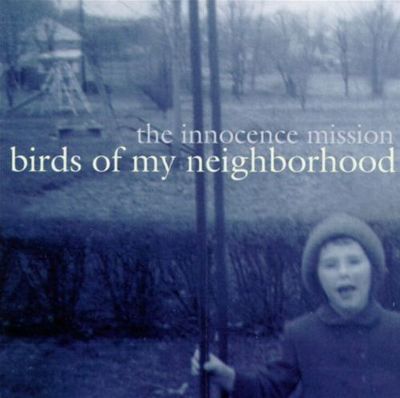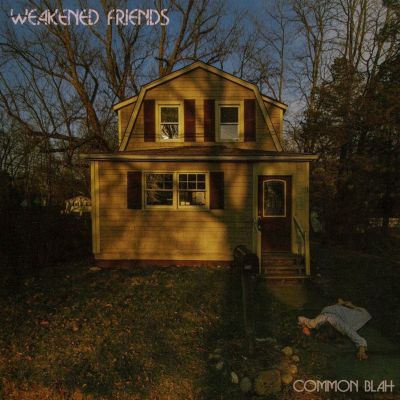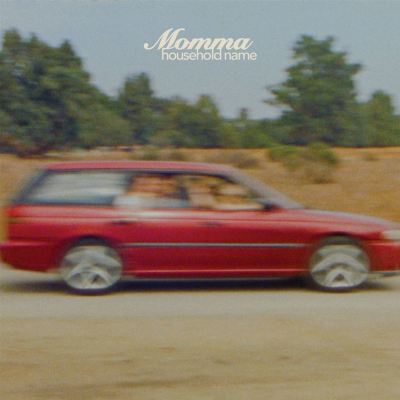Staff Picks for December 2022
December 31, 2022
In 2022 we lost many world-famous musicians but the death of Jess Barr, blistering guitarist for Texas-based alt-country band Slobberbone, largely flew under the radar. His biting and soaring playing is best displayed on their most sprawling album, Everything You Thought Was Right Was Wrong Today, a collection of songs that are smarter than they have any right to be, touching on topics of heartache, love, lost dogs, and the end of the world.
December 30, 2022
RIP to Hamish Kilgour, drummer for the band that launched Flying Nun records, created a unique sound that bands are still borrowing, and were responsible for timeless indie pop classics like "Tally Ho!" and "Anything Can Happen." This collection captures their early '80s beginnings and glorious ‘90s comeback; all the hits plus some oddball rarities are here and ready to be rediscovered.
December 29, 2022
Fourth album from this easy-to-miss Pennsylvanian band is a gently magnificent display of hushed reflections and slow moving revelations. Released in 1999, the group ties together influence from the austere side of U.K. folk with flashes of the kind of alternative singer/songwriter fare that was getting radio play in the late '90s. The result is quiet, insular, and wonderfully moving.
December 28, 2022
Recorded in a mere two weeks, Kristin Hersh's haunting, confessional solo debut revealed an intimacy not hinted at in her work with Throwing Muses. Embellished with touches of cello and piano, these stark acoustic songs are introspective, but never submerge Hersh's considerable inner strength and fortitude.
December 27, 2022
Sure, everyone knows the title track, but when's the last time you listened to the entire album (if ever)? So cool it hurts, this '80s classic from the recently inducted Rock and Roll Hall of Fame members is drenched in cold synths and new wave sheen, elevated by Annie Lennox's inimitable vocals. "Love Is a Stranger," "I've Got an Angel," and "The Walk" are worth immediate attention before digging into the goods beyond their most recognizable single.
December 26, 2022
This album explores small-town heartaches, cinematic moments of self-destruction, and envy. All with an East coast, indie surf-rock tone that makes this album feel representative of adolescent garage bands everywhere.
December 25, 2022
Unfortunately underappreciated, this collection of original and traditional Christmas tunes performed in the Zippers' loose parlor string band style was unavailable for many years, but now seems to be available on many streaming services. An unexpectedly charming and tuneful set that balances silliness with genuine wistfulness. Maybe this year Santa will see fit to put "My Evergreen" into heavy holiday rotation.
December 24, 2022
Before Sandy Denny joined, the quintessential British folk/rockers sounded more like a top notch West Coast psychedelic band, ripping through bonkers guitar workouts, beguiling with witchy Joni and Merry-Go-Round covers, and unspooling weird originals that gave no hint to their later direction. It’s a different kind of magic they are tapping into here, but it shines just as brightly.
December 23, 2022
Recorded over four days at Jack White's Third Man studios in Nashville, Sleep with One Eye Open may Chris Thile fans. While his technical acumen remains uncontested, the addition of blistering bluegrass singer/guitarist Michael Daves and notorious engineering luddite White has helped temper Thile's signature refinements into something raw and primal.
December 22, 2022
This musically primitive album spits on the notion of propriety and tradition. Even though the album is over 40 years old, the politically charged subject matter is still relevant, and the appeal of the basic chord progressions and lightning delivery hasn't died out either.
December 21, 2022
Alison Goldfrapp and Will Gregory's sixth album delivers the set of unforgettable torch songs they always seemed destined to make. With a sultry, smoky blend of orchestral and electronic elements inspired by David Lynch, Ingmar Bergman, and Michelangelo Antonioni and lyrics that contain several diaries' worth of memories and regrets, it's some of the duo's most sophisticated and satisfying music.
December 20, 2022
In honor of the recent passing of Twin Peaks/Blue Velvet composer Angelo Badalamenti, it is worth unearthing his collaboration with James vocalist Tim Booth recording as Booth and the Bad Angel. The songs are lush and baroque with broad and brooding orchestration, and Tim Booth's soaring and sneering vocal dancing over top. Engineered by Nigel Godrich with Bernard Butler on guitar and Brian Eno providing backing vocals(!), this is an album that could only have happened in 1996 and I am thankful for it.
December 19, 2022
When Jürgen Müller's Science of the Sea was released in 2011, it was credited as a reissue of an obscure private press LP from the early 1980s by a self-taught German composer who studied oceanic science. The music's bubbling synths and ambient washes perfectly illustrate scenes of vivid underwater life. Soon after a certain major music website proclaimed the album a "Best New Reissue," it was revealed to be a contemporary work by prolific electronic artist Panabrite (aka the recently passed Norm Chambers). Regardless of its origin, this is up there with Mort Garson's Plantasia in how it evocatively uses synthesizers to explore a particular theme.
December 18, 2022
After eight post-Talking Heads, Byrne has transcended the inconsistencies of his previous efforts and created a genuinely moving and wickedly fun record. While by no means perfect, Grown Backwards is the colorful, multiethnic sound of a New York City enthralled with itself, and like a select few of the Big Apple's denizens, Byrne is a perfect conduit for its love.
December 17, 2022
Paul Revere & the Raiders' fourth album marked a number of firsts: It was their first album to appear after becoming TV stars (and therefore AM radio staples and teenage magazine heartthrobs) as a result of Where the Action Is, and their first album to be produced entirely by Terry Melcher who was, a powerful influence and significant contributor to their sound; it was also their first Top Ten album and first to be certified gold.
December 16, 2022
This folksy punk album discusses the characteristically eclectic subjects Mischief Brew finds creativity in. Things like strange living conditions, nomadic lifestyles, emotional unavailability, and gentrification. These concepts, in addition to the angry fiddlers, acoustic-led melodies, and rough unfiltered vocals, make this album the pinnacle of that bitter, but paradoxically elated, tone that folk-punk attempts to project.
December 15, 2022
At the time of release, this was the most successful debut of all time. While many may have forgotten about it, a revisit reveals that this LP earned all of its sales and accolades, whether we remember it or not. Aside from the four number one singles – which have aged like fine wine – the remaining tracks are a nostalgic trip through late '80s genres that'll put a smile on any pop lover's face.
December 14, 2022
"Spider" John Koerner, Dave "Snaker" Ray and Tony Glover were one of the most powerful acts to emerge in the folk music revival of the 1950s and '60s, playing acoustic blues-based music with a strength and fire that put their peers to shame. Their 1963 debut album, Blues, Rags and Hollers, was a revelation to folk fans upon first release, and restored to its original twenty-song length, it's still a hoot decades later.
December 13, 2022
The truly alternative singer's stunning debut was so unique, so vibrant, and her vocal stylings so unusual that the LP not only put her right at the front of the pack of nascent new wavers, it also sounded a commercial death knell of sorts, relegating her to the realms of novelty acts -- at least as far as the mainstream was concerned. But that's not to say that the mainstream wasn't keeping an ear cocked: the onetime B-side "Lucky Number" landed her a number three U.K. hit in early 1979.
December 12, 2022
About rival Texas cattle and oil barons, Giant had one of the first really good sounding soundtrack albums, with big, booming acoustics that seemed almost bigger than the 210-minute epic itself. With its rousing mixed chorus and a memorable melodic arc, the sprawling "Main Title" was so popular that the Texas legislature later adopted it as the state's anthem.
December 11, 2022
Soccer Mommy's color theory is a diary entry riddled with existentialism disguised as an indie album. The purity in the vocals makes the strangled guitar accents more alluring and mysterious, and the nightmarish breakdown depictions so much more alarming. The entire album is a musical daydream that follows a young musician's metamorphosis.
December 10, 2022
Few aspiring bluegrass artists have tackled the genre as unpredictably as Nickel Creek. Why Should the Fire Die? is an intimate and blazingly progressive album that warrants more than a passing glance from country and bluegrass purists, and the full support of the indie rock/folk/pop community.
December 9, 2022
After the breakup of the Windbreakers, Tim Lee seemed to relish the opportunity to cut back on the jangly guitars and allow the moody storyteller inside him to take hold. Lee rarely did that better than on 2003's Under the House; there's a stark country undertow to the melodies and his songs of busted lives and wrong turns. It's one of the great lost alt-country albums of the 2000s.
December 8, 2022
Late-drummer Paul Motian's work still sounds strikingly contemporary and 1984's Jack of Clubs is no exception. Along with a sparring double tenor front line of Joe Lovano and Jim Pepper, Motian's group also featured kinetic interplay between guitarist Bill Frisell and bassist Ed Schuller. This is an album of boldly nuanced post-bop, weaving together elements of atmospheric space jazz, atonal noise-rock, and moments of jarringly beautiful lyricism.
December 7, 2022
TIME is one of prolific rapper Your Old Droog's definitive releases, mixing captivating storytelling and deeply autobiographical verses with dark humor. MF DOOM, Aesop Rock, Wiki, and Mick Jenkins all provide key guest verses, Edan and Quelle Chris contribute to the album's psychedelic production, and final song "No Time" drives home the album's all-important "love 'em while they're here" message.
December 6, 2022
In 1971, reggae was a largely unknown commodity in America when Dave and Ansell Collins scored a surprise Top 40 hit with "Double Barrel," a quirky but unshakable groove (with Sly Dunbar on drums) accompanied by Dave Barker's deep-echo free association toasting. If "Double Barrel" is the best thing here, the rest is still packed with great, fluid skanking and unassailable boasting; when Dave proclaims "I am the magnificent!," who would dare question him?
December 5, 2022
The choicest cuts (and much more) from the sublime British dream pop trio are collated here on a two-disc anthology that culls the best work from their three LPs. Beautifully remastered and with ample commentary from frontman Nick Laird-Clowes.
December 4, 2022
1996 sophomore album from New York City band set the dreary organic space rock of their debut to decidedly more electronic rhythms, spinning a trip-hop shoegaze hybrid of their own that was more beat-driven and anti-pop than when peers like Chapterhouse did something similar.
December 3, 2022
This indie album sounds relatively generic with a few exceptions like "Lucky" and "Speeding 72" which embrace a little more aggression than the other shoegaze-y songs. It's a good fuzzy-feeling album for spacing out and does a pretty decent job at encapsulating those late-summer and early-fall feelings.
December 2, 2022
A playground of sound that celebrates the pull of memories and music, In Ear Park was dedicated to Daniel Rossen's late father. As with Rossen's work with Grizzly Bear and on his own, there's a dazzling amount of stuff going on in these songs, but as they range from yearning '60s pop to Van Dyke Parks homages, they're always grounded in genuine feeling and heartfelt observations.
December 1, 2022
An evening of late night television sometime after World War III: George Tirebiter and his pals try to find their stolen high school, someone has changed the water, Joe Beets demands shoes for industry, and the pizza guy still won't come up into the hills. Quite simply, the greatest comedy album ever made.



















![Giant [Original Motion Picture Soundtrack]](https://fastly-s3.allmusic.com/release/mr0001129987/front/400/KOoBkDBL08Qdd7aJmN2SKoAf7E_1E-2MlBBPmPAXRBU=.jpg)










